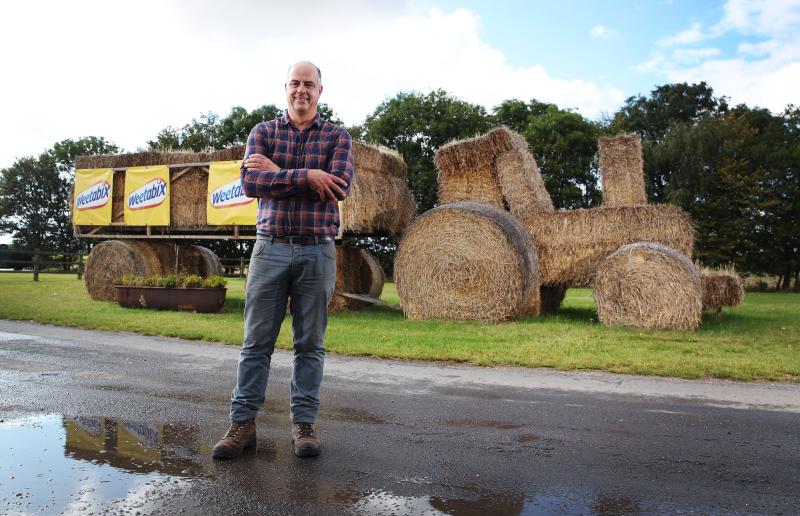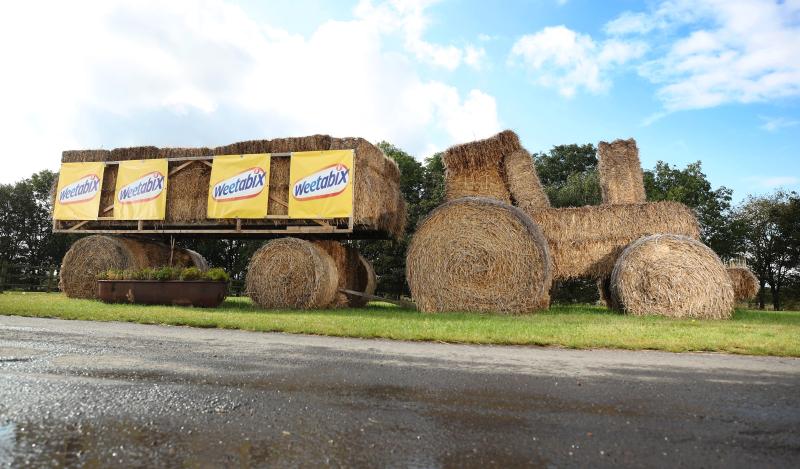
A Cambridgeshire farmer's giant tractor made from sixty-two straw bales has won this year’s ‘Wheat Art’ competition.
Judges felt that the 10-foot tractor, created by farmer Michael Sly and his team from Park Farm in Thorney, deserved the top spot.
The competition, launched by Weetabix to celebrate the 10th harvest under the company's wheat protocol, promotes sustainable farming and donates £1,000 to the winner's charity of choice.
Michael’s tractor pipped other creations, which included a tower of multi-coloured farm animals and a sausage dog.
His chosen charity was the Thorney Society, who run a local heritage museum that educates visitors about the importance of local food and farming.
The panel of judges included MPs Philip Hollobone, Tom Pursglove and Chris Heaton-Harris, and was chaired by Weetabix MD Sally Abbott.
Over the last decade, over 350 local farmers have participated Weetabix's wheat protocol, growing approximately 75,000 metric tonnes each year across around 4,000 acres, equivalent to almost 3,000 football pitches.
Michael Sly, from Park Farm, Thorney, said: “We were inspired by our Open Farm Sunday event to build a tractor and trailer and hope it will raise a smile for all the visitors to our farm.
“Winning the competition means that our chosen charity, the Thorney Society, will be able to continue its work of informing visitors to the museum of the importance of food and farming, past and present.”

Charlotte Hunt, Senior Brand Manager at Weetabix, added: “‘Michael’s structure really stood out – we loved its ingenuity, and the result is iconic.
“We’re proud of our relationships with local farmers and we’ll continue to work with them to guarantee the quality, consistency, traceability and environmental sustainability of each harvest.”
